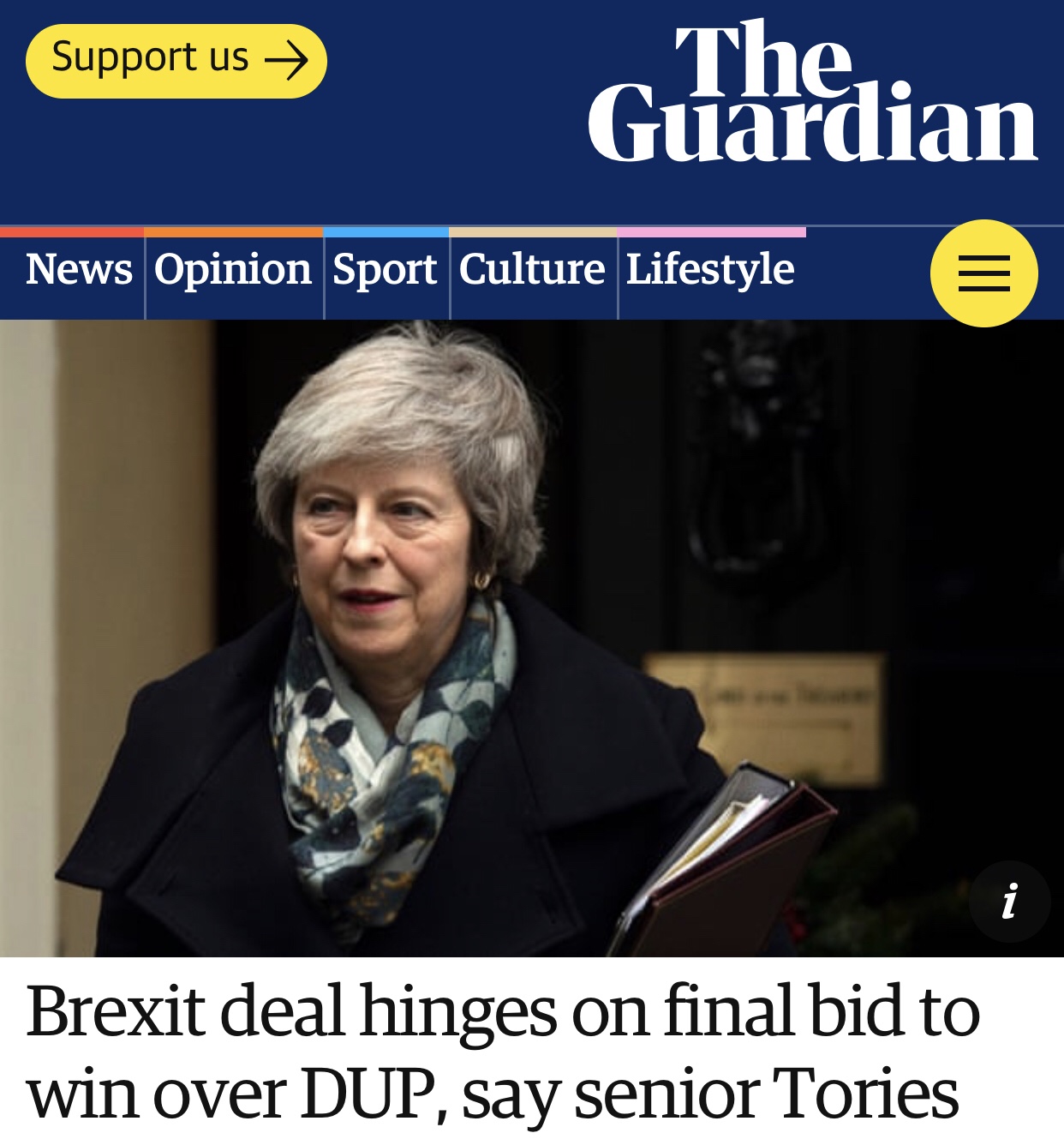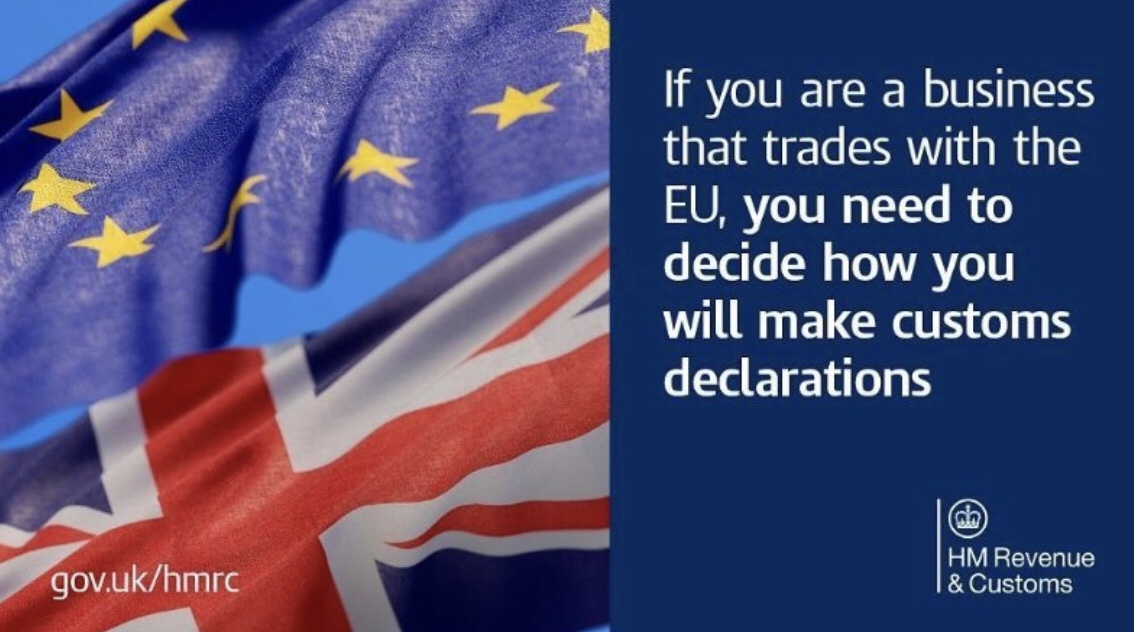According to The Guardian today, Brexit deal hinges on final bid to win over DUP.
The Guardian writes that PM Theresa May is within 20 votes of winning a parliamentary majority for her Brexit deal if she can gain assurances from the EU that will persuade the Democratic Unionist party to back her deal, senior ministers and Tory MPs believe.

One cabinet minister said they believed the success of the prime minister’s deal hinged entirely on a last bid to win round the DUP. Another MP said they saw the Northern Irish party as the “British standard” who would give them the reassurance they needed to fall in behind.
With 100 days to go until Brexit, EU today presents its vision of a “managed no-deal” exit.
14 legal acts, at EU level, to cope with an abrupt Brexit and ensure a measure of continuity.
They cover flying rights, air safety certificates, derivatives contracts, time limits for customs declarations. Extremely limited measures are proposed for customs. Time limits are adjusted for customs declarations, but no other special waivers are included
No special contingency measures are outlined for medicines, data flows, veterinary checks, fisheries or non-financial services, even though these will ultimately probably need to be addressed by the union in a hard-exit scenario.
”If you are a business that trades with the EU you need to decide how to make Customs declarations”.
HMRC has asked business that trade with the EU to start preparing for the unlikely event of the UK leaving the EU without a deal.

Although HMRC think leaving the EU without a deal is unlikely they want businesses to prepare for this possibility.
Here is a link to the advisory document: Trading with the EU if the UK leaves without a deal






You must be logged in to post a comment.